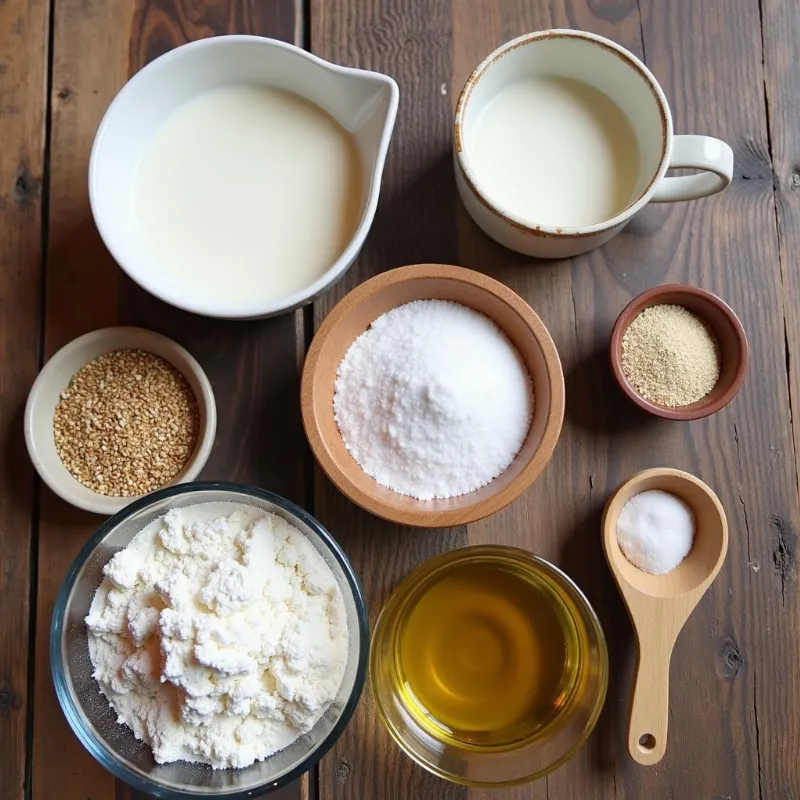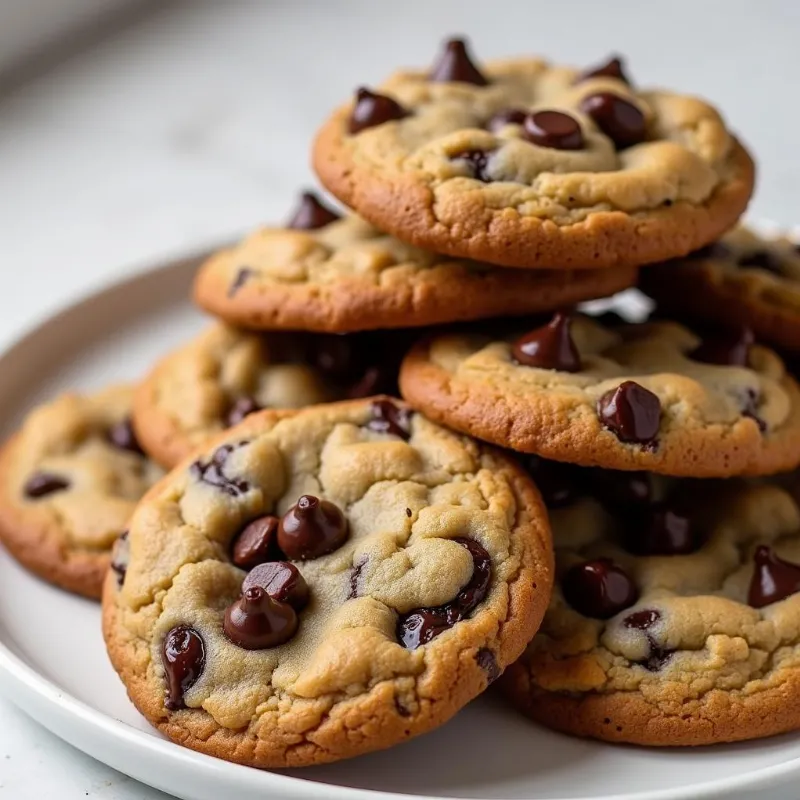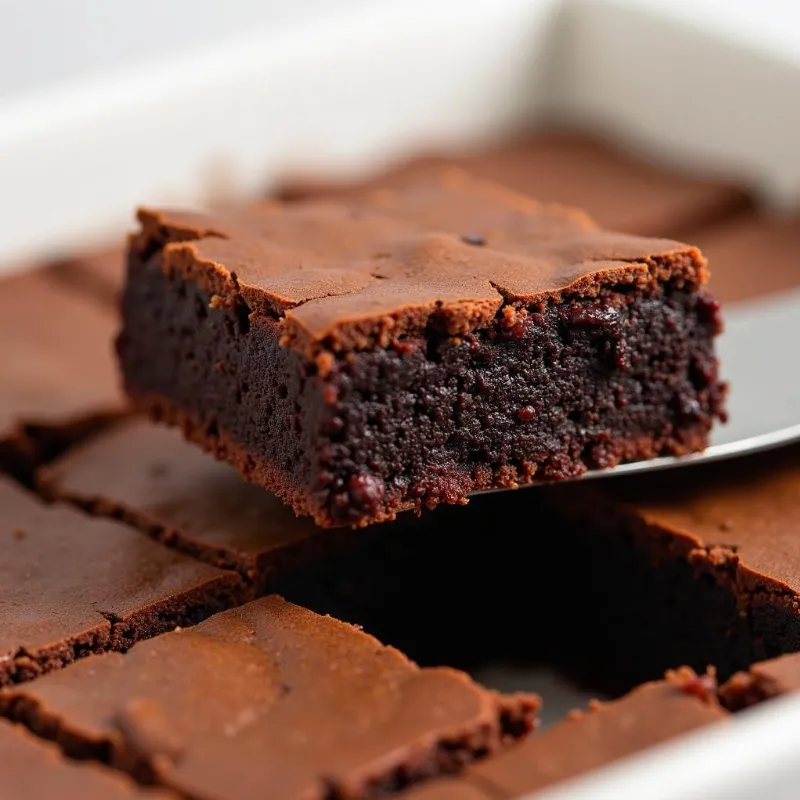Vegan baked goods have come a long way from their humble beginnings. Gone are the days of dry, crumbly treats that left you feeling unsatisfied. Today, a world of delectable and decadent vegan baked goods awaits, bursting with flavor and texture that will rival even the most indulgent non-vegan counterparts. This comprehensive guide will walk you through everything you need to know to create mouthwatering vegan baked goods in your own kitchen.
 Essential Vegan Baking Ingredients
Essential Vegan Baking Ingredients
Understanding the Fundamentals of Vegan Baking
Vegan baking, at its core, is about swapping out traditional animal-derived ingredients with plant-based alternatives without compromising on taste or texture.
Key Substitutions for Vegan Baking
- Eggs: Flaxseeds, chia seeds, applesauce, mashed bananas, and commercially prepared egg replacers are excellent options to provide binding, moisture, and rise to your baked goods.
- Dairy Milk: Almond milk, soy milk, oat milk, coconut milk, and cashew milk are just a few of the widely available plant-based milk options that seamlessly replace dairy milk in recipes.
- Butter: Vegan butter, coconut oil, avocado oil, and mashed bananas are healthy and flavorful alternatives to butter, contributing to a moist and tender crumb.
- Honey: Maple syrup, agave nectar, and brown rice syrup are popular vegan sweeteners that lend a touch of natural sweetness to your treats.
 Perfectly Golden Vegan Chocolate Chip Cookies
Perfectly Golden Vegan Chocolate Chip Cookies
Mastering the Art of Vegan Baking
While the ingredients play a crucial role, mastering a few key techniques can elevate your vegan baking from good to extraordinary:
- Proper Measurement: Accurate measurement is paramount in baking. Invest in a kitchen scale for precise measurements, especially for dry ingredients.
- Room Temperature Ingredients: Using room-temperature ingredients, particularly plant-based milk and vegan butter, ensures they incorporate evenly into the batter or dough, resulting in a smoother consistency.
- Don’t Overmix: Overmixing can lead to tough and dense baked goods. Mix the batter or dough just until the ingredients are combined.
- Preheat Your Oven: A preheated oven guarantees that your baked goods cook evenly and rise properly.
- Toothpick Test: To determine doneness, insert a toothpick into the center of your baked good. If it comes out clean or with a few crumbs attached, it’s ready.
Exploring a World of Vegan Baked Goods Recipes
From classic cookies to elaborate cakes, the possibilities for vegan baked goods are endless. Here are a few ideas to inspire your next baking adventure:
Vegan Chocolate Chip Cookies
A timeless classic that translates beautifully into a vegan version. These cookies are crispy on the edges and irresistibly gooey in the center. Find our favorite vegan chocolate chip cookie recipe on our website.
Pro Tip from Chef Emily Green: “For extra chewy cookies, slightly underbake them and let them cool completely on the baking sheet.”
Vegan Banana Bread
This moist and flavorful bread is a fantastic way to use ripe bananas. It’s perfect for breakfast, a snack, or even dessert.
Vegan Cinnamon Rolls
These soft and fluffy cinnamon rolls are infused with the warm flavors of cinnamon and topped with a luscious vegan cream cheese frosting.
Vegan Brownies
Indulge your chocolate cravings with these rich and fudgy brownies. They’re incredibly decadent and satisfying.
 Fudgy and Delicious Vegan Brownies
Fudgy and Delicious Vegan Brownies
Troubleshooting Common Vegan Baking Issues
Even experienced bakers encounter challenges in the kitchen. Here are a few common vegan baking issues and their solutions:
- Dry Baked Goods: Ensure you’re using the correct amount of liquid and fat. Adding a tablespoon or two of plant-based milk or applesauce can help.
- Dense or Gummy Texture: Overmixing or using too much gluten-free flour can result in a dense texture.
- Flat or Unrisen Baked Goods: Make sure your leavening agents, such as baking powder or baking soda, are fresh.
Tips for Storing and Freezing Vegan Baked Goods
To maximize the shelf life of your delicious creations:
- Store at room temperature: Most vegan baked goods can be stored in an airtight container at room temperature for 2-3 days.
- Freeze for longer storage: Wrap baked goods tightly in plastic wrap and then in aluminum foil or a freezer-safe bag for up to 2 months.
FAQ: Your Vegan Baking Questions Answered
1. Can I use any type of plant-based milk in vegan baking?
While most plant-based milk varieties work well, some, like coconut milk, have a stronger flavor that might be noticeable in the final product.
2. Are vegan baked goods healthier than traditional baked goods?
Vegan baked goods can be healthier as they are typically lower in cholesterol and saturated fat. However, it’s essential to choose recipes with wholesome ingredients and avoid excessive sugar.
3. Can I use regular sugar in vegan baking?
While granulated sugar is generally considered vegan, some brands process their sugar using bone char, which is not vegan-friendly. Look for vegan-certified sugar or opt for unrefined sweeteners like coconut sugar.
4. What are some common mistakes to avoid in vegan baking?
Overmixing, not preheating the oven, and using the wrong measurements are common mistakes that can affect the outcome of your vegan baked goods.
5. Where can I find more vegan baking recipes?
Explore our website for a wide variety of delicious and easy-to-follow vegan finger food for parties, vegan brazil nut recipes, and even vegan breakfast san diego ideas.
Embrace the Sweet Rewards of Vegan Baking
With a little practice and the right guidance, you’ll be amazed at the incredible vegan baked goods you can create. From simple cookies to elaborate cakes, the possibilities are endless. So gather your ingredients, preheat your oven, and embark on a delightful journey of vegan baking.
“Remember, the most important ingredient in vegan baking is love. When you pour your heart into it, the results are always magical,” says Chef Emily Green.
